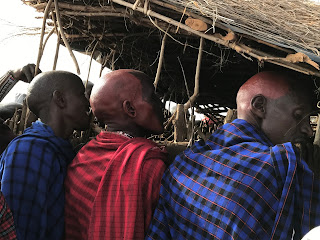'I have been paid in beauty.'
'Who gets to do this? Seriously? We are so lucky.'
He is so correct. Over the past ten years working in Africa I have seen such extraordinary beauty in wildlife, wild lands and people. My job entails visiting and working in some of Africa's most special places. Who gets to do this? I do.
The picture below is in Amboseli. The commute from the airstrip to a meeting. Extraordinary Beauty.
The picture below is in Amboseli. The commute from the airstrip to a meeting. Extraordinary Beauty.







